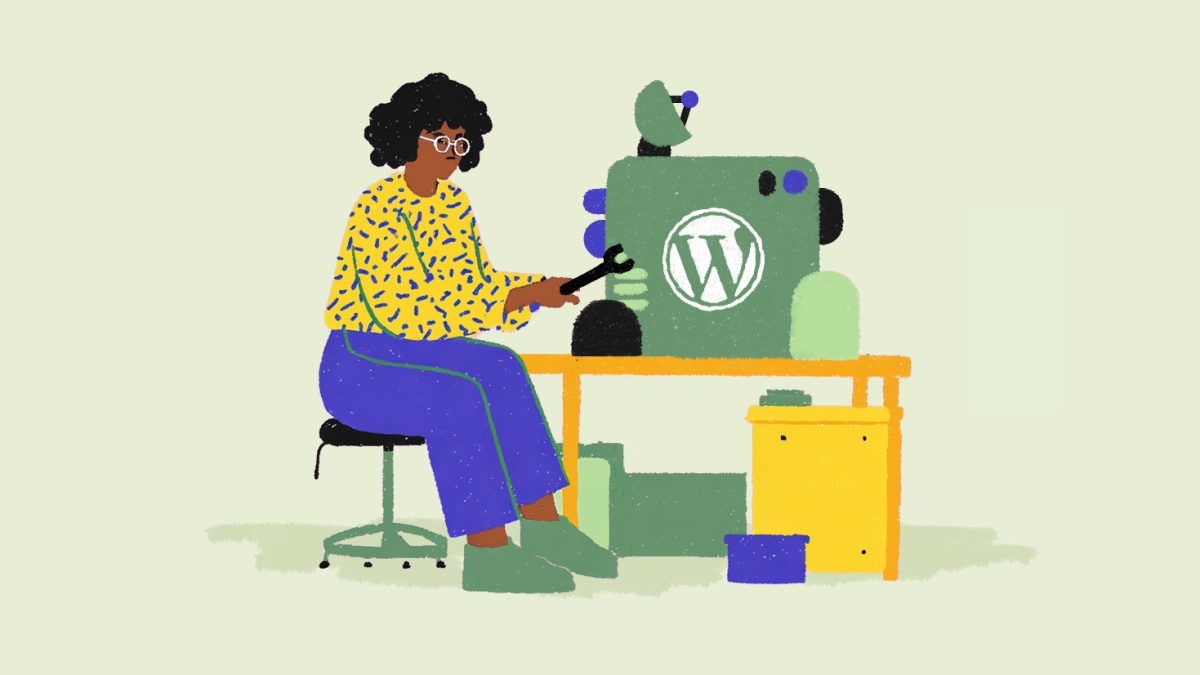There’s a common misconception that once a WordPress website goes live, the job is done. But in reality, the launch is just the beginning!
The digital world (and the context your site lives in) is constantly changing with browser updates, evolving plugins, new business objectives and shifting design trends. While your business is moving forward, it’s important that your website is keeping up and not falling behind.
That’s why ongoing maintenance and support isn’t just about fixing bugs or keeping things secure, it’s about making space for continuous improvement. It’s about creating the conditions where your website can keep pace with change and help drive your business forward.
Your website lives in a moving ecosystem
We often talk about WordPress itself changing, with new releases, plugin updates and security patches. And while it’s important to keep your WordPress up to date and healthy, it’s much broader than that.
Everything around your website is changing:
- Technology. Browser, programming languages, third-party tools, and devices are constantly evolving.
- User behaviour. How people browse, what they expect, and what they tolerate shifts over time.
- Your business. Strategy, goals, messaging, and offerings naturally develop.
- Compliance. Accessibility, SEO standards, legal and data regulations are always changing.
The idea that a site can be built once and left alone just doesn’t hold up anymore. Without care and attention, cracks form, features break and the site speed slows. Your site starts to drift out of sync with both users and business needs.
What does meaningful support look like?
We’ve established that maintenance is more than just patching holes, so what should a support package actually involve?
Security Monitoring & Updates
Keeping WordPress core, themes and plugins updated isn’t optional. Before we apply any updates, we need to test them first. Throw in malware scanning, SSL upkeep, and coordination with your hosting provider on backups, and there’s already a fair bit to think about.
There’s also visible layer to consider: keeping your site compatible with the latest version of PHP, the programming language WordPress runs on. PHP updates often being important security and performance improvements, but out-of-date code or plugins can cause issues, making ongoing monitoring even more critical to the health of your site.
Performance Marketing
Speed isn’t just a nice-to-have. It impacts SEO, conversions and the user experience. According to Cloudflare, sites that load in 1 second have a conversion rate 3x higher than sites that loads in 5 seconds. That means performance improvements can have a significant impact on how effectively your website support your foals.
Monitoring uptime, optimising images, managing caching, and understanding how different updates affect performance over time are all key to keeping your site fast, efficient, and delivering results.
Continuous Improvement & Optimisation
A website should never be static, it should evolve based on how real users interact with it. Through regularly analysing user journeys and performance data, you can understand what’s working, and what isn’t. From there, businesses can experiment with changes, for example, testing new layouts, refining calls to action, or restructuring content to improve clarity and flow. Even small, data-informed tweaks can unlock major gains in engagement and conversion.
Design Support & Creative Input
Digital design isn’t static and as your brand evolves, or you launch new campaigns, your site needs to reflect those shifts. That might mean refreshing visual assets, creating new landing pages, or gradually refining how content is presented. Design should be part of support, not separate from it.
Plugin Management
Depreciated plugins, errors, bugs or conflicts can cause issues. Or even knowing which plugin to use can be complicated. Having the right management of your plugins can make the difference between a site that’s frustrating to one that feels solid, current and well-maintained.
Technical Support
Inevitably, things go wrong. For example a third-party integration might fail, an error could appear on a page that hasn’t ben touched in weeks, or your team just wants to know how to do something. Support means being able to lean on a team who knows your site and how to fix it, fast.
Accessibility & SEO Checks
These are often seen as launch tasks, but they’re just as relevant post-launch. As content changes and new pages are added, it’s easy for issues to creep in. Accessibility, in particular, isn’t just a technical consideration. Heading structures, alt text, link wording and video captions can all be affected by day-to-day content editing. Regular audits help catch problems early, ensure compliance with evolving standards, and keep your site usable, discoverable, and inclusive for all audiences.
The cost of standing still
The risk of ignoring maintenance isn’t just about broken features. It’s reputational, strategic and financial.
- Downtime can damage trust and directly impact revenue
- Slow loading speeds frustrates users, harms your rankings and conversions
- Security vulnerabilities creates risk, especially if you’re handling personal or sensitive data
- Outdated design or content can quietly undermine your credibility
But perhaps the biggest risk is missed opportunities. A well-supported site doesn’t just avoid problems, it improves and adapts.
Is your website keeping up?
Some of the signs a site needs support are obvious, broken plugins, confusing errors and loading issues. Other might be subtler:
- Are you nervous about pressing ‘update’ in the dashboard?
- Has the person who built your site moved on and on one else quite knows how it works?
- Are you unsure when your site was last updated?
- Do you lack the time or expertise to keep things running smoothly?
- Does your website still reflect where your business is today?
If any of these feel familiar, it might be time to look at what a more intentional approach to support could unlock.
What we’ve seen work well
At Rareloop, we support a variety of WordPress websites, some we’ve built, other we’ve inherited. In many cases, the biggest improvements come from consistent and thoughtful attention. Such as, small design tweaks that lift conversion rates, improved page speed that boosts search visibility and simplifying the backend so teams feel confident updating content again.
Support, at its best, is quiet progress. It’s the compounding benefit of lots of small, well-informed decisions. It’s a way to make sure your website doesn’t just keep up but actively support your growth.
Conclusion
A website shouldn’t be a fixed asset. It should be a living part of your business, something that grows, shifts and improves as you and your business does. That requires maintenance and care, insight and the willingness to keep iterating.
Because the businesses that get the most from their websites aren’t the one that stop at launch. They’re the ones that keep pushing the site, testing, tweaking and evolving. And in our experience, that’s where the real value is unlocked.




